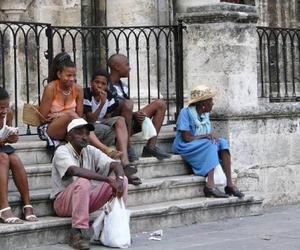Social investigation shows that 25% of the Cuban population is mired in poverty
- Submitted by: Luis Manuel Mazorra
- Society
- 09 / 26 / 2014

A study conducted by young researchers and published by the Felix Varela Center and the Latin American Faculty of Social Sciences showed that 25% of the Cuban population is mired in poverty.
The book presented in Havana under the title "Keys to think poverty in Cuba through the eyes of young researchers" is a study compiled by Maria del Carmen Zabala. The trials included therein cover a "broad range of topics," with references to public policies, local participation in combat shortages, relationship between poverty and the environment, territorial and familiar expression of poverty, physical and mental health implications and cultural expression of poverty, among others.
Research shows this issue "has complex character, is multifactorial and multidimensional." Collective author stresses that "the deep crisis of over 20 years reshaped the social structure from the demographic, class, occupational, generational and racial point of view and thereby deepened social inequalities.”
"This is how the progress made by the economic and social policies for social equality implemented by the socialist government step back" they add.
"This kind of poverty qualify as 'protected and guarantees' or 'under' due to government subsidies in place in some social security and the fact that health care and education are free," they argue. However, the study says that a significant part of the population remains below the threshold of subsistence.
Alone elders, women, persons with primary and middle level education, the chronically ill and disabled, unemployed, domestic workers, employees of the state sector and black and mestizo people, are the groups most likely to live in poverty, says Valdes Paz.
Source: Diario de Cuba
Comments